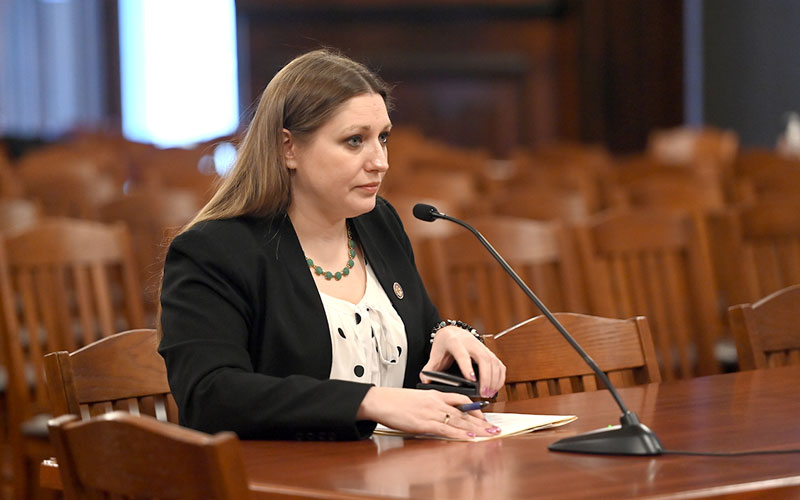Illinois Sen. Rachel Ventura filed legislation that would legalize psilocybin for adult-supervised use in a licensed service center.
The state legislation, known as Compassionate Use and Research of Entheogens (CURE) Act, aims to tackle treatment-resistant anxiety, depression, PTSD, substance abuse, eating disorders and other mental-health conditions.
Additionally, it facilitates research into the safety and efficacy of psilocybin through medical, psychological and scientific studies, according to Ventura.
“As mental-health concerns rise throughout our state and nation, it’s imperative to acknowledge that conventional treatments don’t always suffice,” Ventura said. “Psilocybin shows promise as a potential solution, particularly for those grappling with PTSD and other mental-health disorders. The ongoing research and trials have yielded encouraging results.”
The bill also would establish the Illinois Psilocybin Advisory Board under the Department of Financial and Professional Regulation, which would create a training program, ethical standards and licensing requirements.
“We’re dedicated to eliminating obstacles to healing in Illinois,” Ventura said. “As additional options emerge for the public, my aspiration is for plant medicines to shed their stigma and be recognized for their safe and beneficial qualities.”
Rep. LaShawn Ford introduced comparable legislation in the Illinois House under HB1, and “Ventura and Ford are collaborating closely to develop robust legislation,” Ventura’s office said in a news release.
Sen. Willie Preston serves as a principal co-sponsor on the Senate bill, along with Reps. Jonathan Carroll, Harry Benton and Kelly Cassidy on the House bill.
“Prohibition has always been bad public policy and dangerous for public health,” stated Ford. “I’m proud to work with Senator Ventura to pass a law to help veterans struggling with PTSD and others seeking therapy to help with life challenges.”
‘Demand Is Far Outpacing Supply’
The FDA has labeled psilocybin twice as a “breakthrough therapy” for treatment-resistant depression, indicating federal acknowledgment of its therapeutic promise. In June, the agency released its inaugural guidelines for researchers keen on investigating its potential for medical applications.
“Law Enforcement Action Partnership recognizes this bill as nothing short of life saving, providing a proven means for people to work through their traumas and live happier, healthier and more productive lives,” said Dave Franco, a retired Chicago police officer. “The benefits for mental and behavioral health can also have sizable impacts on community health and public safety.”
In 2021, Oregon became the first state to legalize adult use of psilocybin through a ballot initiative. Unlike cannabis, adult use must occur at a licensed facility.
In November 2022, Colorado voters approved a ballot measure that made Colorado the second state in the nation to approve a state-regulated program for legal access to psilocybin therapies.
Earlier this year, the Indiana Senate committee passed a medical-psilocybin research bill. Senate Bill 3695 would not allow for the sale, use or personal possession of psilocybin in Illinois.
“At the current pace, demand for therapeutic psychedelic experiences and retreats is far outpacing the supply of psychedelic guides, therapists, and practitioners,” said Jean Lacy, founder of the Illinois Psychedelic Society. “We are asking that lawmakers in Illinois not let unnecessary barriers stand in the way of safe, compassionate access and quality assurance for psychedelic healing.
“Illinois has the opportunity to be a standard-setter for other states, creating training centers, developing standards of care and providing a model for other states to follow. Illinois’ mental-health crisis is growing and there are serious consequences to withholding these medicines from those who need it.”
The CURE Act – Sen. Bill 3695 – was filed Friday Feb. 9, and awaits committee assignment.

